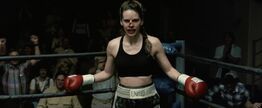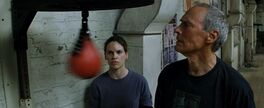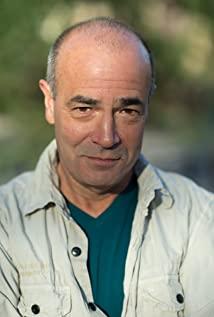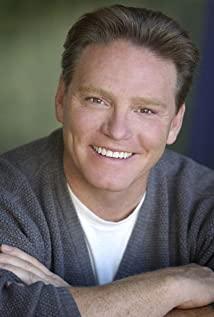There are many kinds of good movies: they are entertaining, the stories are exquisite, the pictures are exquisite, and the fighting is exciting... In "Million Dollar Baby", the plot was originally going in a good direction, but it just happened by accident and everything fell out completely. size. As an audience, we can only sigh and do nothing. The good thing about this kind of movie is that it always makes people feel a kind of pain in their hearts, which cannot be resolved. So, I naturally thought of this question: What is the value of human life? Does life come to an end after realizing its value? Do people have the right to end their own lives? What role does faith play in life? I went through a series of discussions on euthanasia in Chai Jing's blog, and tried to answer these questions at the risk of God laughing, and came up with these thoughts:
Some people say that the value of life lies in the society, and the value can only be reflected in the society. And I'm always happy to go back to the roots and try to think at the root of things. I think part of the value of life is life itself. Yes, I refer to the beginning of a person's life, from a cell to a body that can act on its own, and then to know the world, learn languages, and think autonomously. All of this is the magic of life, and because it happens to everyone, we ignore it, and we miss a lot of reasons for joy and gratitude. Why do so many soon-to-be parents get excited about their first X-ray film? It's easier to understand when you think about the value of life itself. On the other hand, the value of life does have its social attributes, but this value does not necessarily have to be reflected in society. How to recognize the value of life, and even the value of anything, depends on each person's different values. The various values that each person has must be influenced by the value orientation of the whole society, but each has its own differences. And the value of each person's life is to achieve what they think is valuable in their own values. From a different angle and a different value, the evaluation of the value of a person's life will be completely different. And I think that a life has the right to decide how to live according to the values. Therefore, although the task of judging the value of a life may fall on other people, the self-awareness of life is the realization of value. driving force. Maggie believes that the value of life lies in boxing, she has got everything she has never even dreamed of, and for herself, the value of her life has been maximized. In her mother's eyes, she was still worthless, and the more meaningful thing was the house she earned. As Eddie said, some people have never had a relationship until they die, and Maggie has reached the peak of her life under the guidance of Frankie.
Then, when the value of life is realized, can life end? Do people have the right to dispose of their own lives? Of course, there are legal and ethical issues. Going back to the source again, it seems that life is bestowed by our parents, so we cannot just terminate our own life. There is also a saying in ancient China that "if the hair and skin are received by the parents, it is unfilial to damage it". But can parents decide the life and death of their children? Do parents have ownership over their children's lives? Do not. A more plausible explanation is that life comes from nature, or, as some people like to say, from God. The programmer's thinking makes me more inclined to "where it is born, where it dies". If a person's life ends by himself, the symmetry will be lost, and only natural death can truly conform to the laws of nature. So from my ethical point of view, suicide by any able-bodied person is a disrespect for life and contempt for the nature that produces life. However, ethics and law are two completely different things. The law must be approved by the majority of the people in society, and some people say that the law often lags behind people's cognition. I believe that most people think that suicide is unreasonable, but if it is said that suicide is against the law, I believe that few people will agree. So what about euthanasia? Where is the bottom line of euthanasia? Where exactly should it be in the legal and ethical position? Chai Jing's discussion was initiated by a girl named Li Yan, who was 28 years old and had been bedridden with muscle disease for 27 years. Only her mother can take care of her life, and facing the long life ahead, with the fear of losing her mother one day, she thought of death. People like her, people like Maggie, people with advanced cancer who have all kinds of tubes inserted in their bodies and rely on various instruments to maintain their lives, should they continue to live?
Maggie's suicide, apart from the pain she experienced, was largely due to her inability to formulate new value goals for her life. Of course, as bystanders, we must admit that it takes considerable courage and perseverance to be able to endure that kind of pain and continue to live and pursue new values in life. This courage and perseverance is beyond the imagination of anyone who has not experienced the same pain. But I believe that the desire to survive is also the strongest. When Li Yan was assuming that if someone could take care of her and love her like a mother, she would still be willing to continue her life. However, patients with advanced cancer who seem to be in a similar situation have very different fundamental reasons for dying. For them, death is only a matter of time, and the pain experienced at this stage before death is enormous. One statement I particularly agree with is that the doctor's job is not to prolong life, but to reduce suffering. The so-called waiver of CPR allows patients to choose how their lives end. Abandoning the rescue can make life pass away naturally, and at the same time reduce the pain that the barely maintained life needs to endure. In this way, life has not been artificially ended, and all my previous moral and ethical doubts have been solved.
Another extreme understanding will cast doubt on all medicine. Does the medical treatment of life defy nature? When a person has other people's blood in his body and other people's heart beats in his chest, does his life still belong to him? Conversely, if modern medicine never existed and Maggie died, would the story of this million-dollar baby be so heartbreaking? Frankie didn't need to go through such a fierce inner struggle to end Maggie's life, nor would he live in the shadow of a religious curse.
When people can't answer all kinds of confusions in life, when people can't let go of the burden in their hearts, faith becomes the object of their help. It's hard to know what really happened between Frankie and his daughter, what exactly Frankie committed what he called a "sin". It was his unresolved emotions that made him try again and again to find the answer in his faith. But as a boxing coach, he is also a person with his own subjective consciousness. He tried to question the interpretation of the faith in the world, and hoped that the priest could convince him, but it was this questioning that prevented him from being a proper spiritual convert. Until the end to help Maggie out of the pain, he still struggled to choose himself.
Frankie never shows up again, and the rest of his life must be peaceful and bleak. These conflicts of beliefs, ethics, morals and values, the turbulence aroused in his heart will not subside for a long time. Whenever he sits in the sun to read, will the cry of "Mo cuishle" ring in his ears again, evoking the lingering pain in his heart?
View more about Million Dollar Baby reviews











